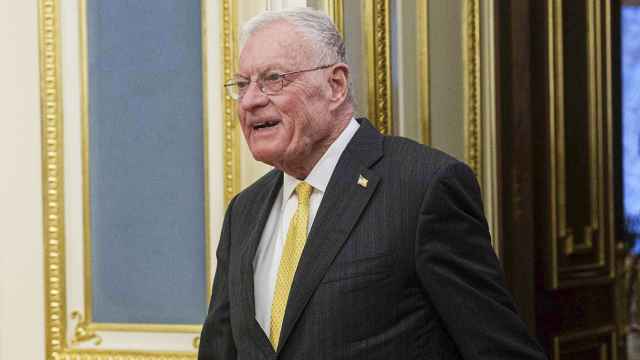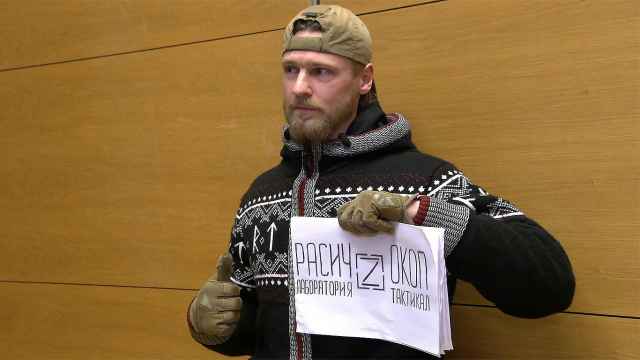Russia has said Iran was not to blame for the failed outcome of nuclear talks in Geneva last week, hinting at cracks in what had previously appeared to be a relatively united international front on the issue.
A source in the Russian Foreign Ministry said Tuesday that the account of the talks given by U.S. Secretary of State John Kerry this week was an oversimplification of events.
"The draft of the joint document readied by the Americans was agreeable to the Iranians, but as decisions at the negotiations in this format are adopted by consensus, it was unfortunately not possible to come to a final agreement. This was not the fault of the Iranians," the source said.
Kerry on Monday accused Tehran of backing away from a deal to limit its nuclear program in exchange for relief from sanctions that have stifled its economy. He said that a deal could be reached in the coming months, however, adding that "through diplomacy we have an absolute responsibility to pursue an agreement."
Tehran has pointed the finger at the West for the failure to reach consensus in Geneva.
Iranian Foreign Minister Mohammad Javad Zarif responded to Kerry's remarks Tuesday, saying that blaming Iran would only undermine confidence in the negotiations, which are scheduled to resume Nov. 20.
"Mr. Secretary, was it Iran that gutted over half of the U.S. draft Thursday night and publicly commented against it Friday morning?" Zarif asked on Twitter.
"No amount of spinning can change what happened within 5+1 in Geneva from 6 p.m. Thursday to 5:45 p.m. Saturday. But it can further erode confidence," he wrote, adding that the Iranian side was still "committed to constructive engagement."
"Interaction on equal footing is key to achieving shared objectives," he said.
Iran also blamed France for the failure to reach an agreement.
French Foreign Minister Laurent Fabius told French media during the talks on Saturday morning that his delegation did not agree with the draft under discussion.
"There are some points on which we are not satisfied," Fabius said, Agence France-Presse news agency reported. AFP quoted Fabius as citing the "extremely prolific" Arak nuclear reactor and the issue of uranium enrichment.
Fabius called the deal a "fool's game" on Saturday and said Paris could not accept it, Reuters reported.
Tehran offered last month to stop enriching uranium to 20 percent in exchange for the lifting of sanctions, starting with its banking industry and oil exports.
Iran insists its nuclear program is aimed at generating nuclear energy for civilian purposes, but the U.S. and other Western powers suspect the Islamist state of seeking to build nuclear weapons.
The talks between Iran and the six powers — the U.S., Britain, Russia, China, France and Germany — will resume Nov. 20.
Material from The Moscow Times is included in this report.
A Message from The Moscow Times:
Dear readers,
We are facing unprecedented challenges. Russia's Prosecutor General's Office has designated The Moscow Times as an "undesirable" organization, criminalizing our work and putting our staff at risk of prosecution. This follows our earlier unjust labeling as a "foreign agent."
These actions are direct attempts to silence independent journalism in Russia. The authorities claim our work "discredits the decisions of the Russian leadership." We see things differently: we strive to provide accurate, unbiased reporting on Russia.
We, the journalists of The Moscow Times, refuse to be silenced. But to continue our work, we need your help.
Your support, no matter how small, makes a world of difference. If you can, please support us monthly starting from just $2. It's quick to set up, and every contribution makes a significant impact.
By supporting The Moscow Times, you're defending open, independent journalism in the face of repression. Thank you for standing with us.
Remind me later.





